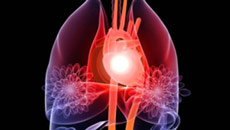Australian researchers have found that a cholesterol-lowering drug can lower cardiovascular disease risks by 30 percent in women with type-2 diabetes.
The five-year study of nearly 10,000 people with type-2 diabetes also assessed the drug fenofibrate's impact on a range of lipoproteins and triglycerides (circulating blood fats) that elevate the risk of cardiovascular events such as stroke and heart attack.
They found that among type-2 diabetic patients with an elevated risk of cardiovascular disease, fenofibrate cut adverse cardiovascular outcomes by 30 percent in women and 24 percent in men.
“The finding is good news for women. The study shows that fenofibrate reduced the risk of dying from cardiovascular disease, or having a stroke or other adverse cardiovascular event more in women,” said Tony Keech from University of Sydney.
Fenofibrate stimulates the action of an enzyme that breaks down triglycerides and low-density lipoproteins.
Stimulating this enzyme increases the breakdown of triglycerides (another type of blood lipid) and low-density lipoproteins in the bloodstream and raises HDL cholesterol.
“Cardiovascular disease is the most common cause of death in women, almost three times more common than breast cancer,” said study's lead author Michael d'Emden from Royal Brisbane Hospital.
The study appeared in the journal Diabetologia.





